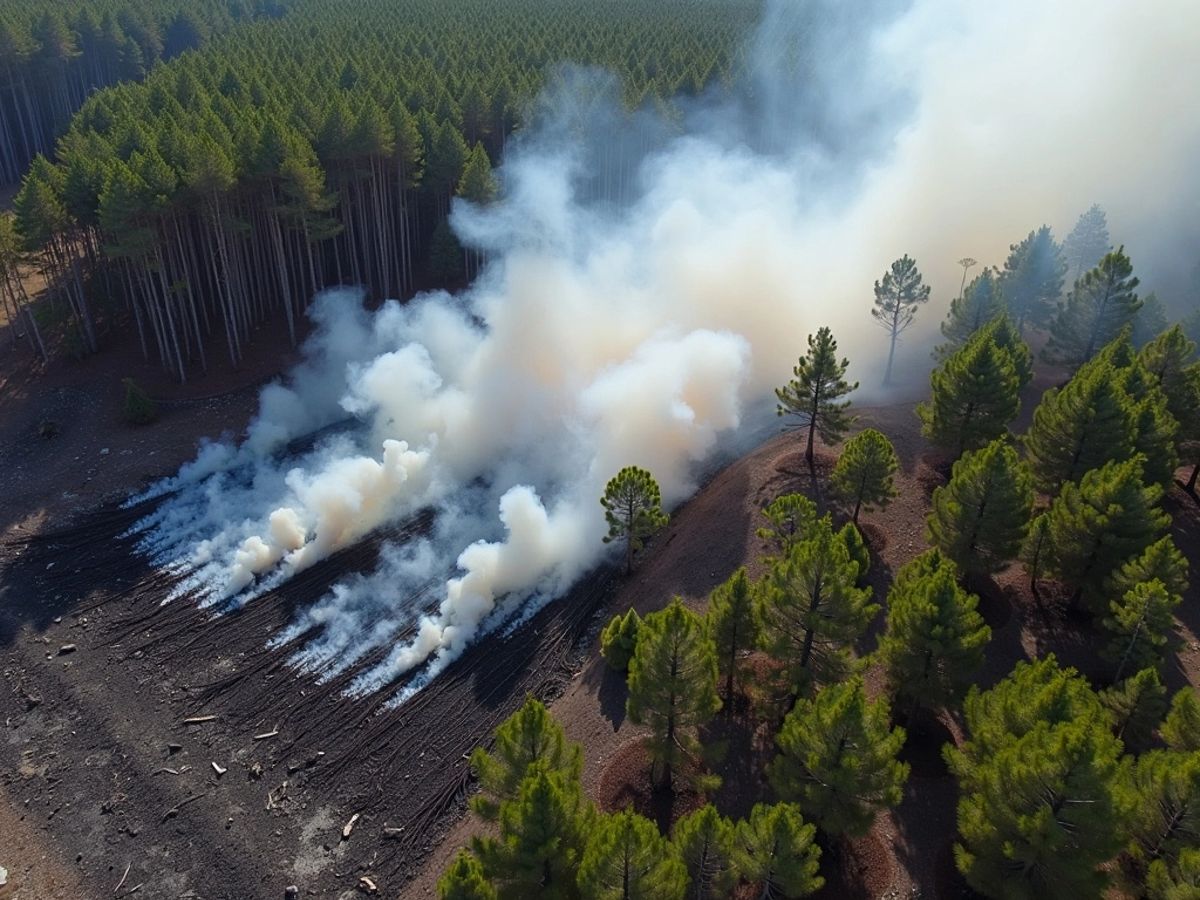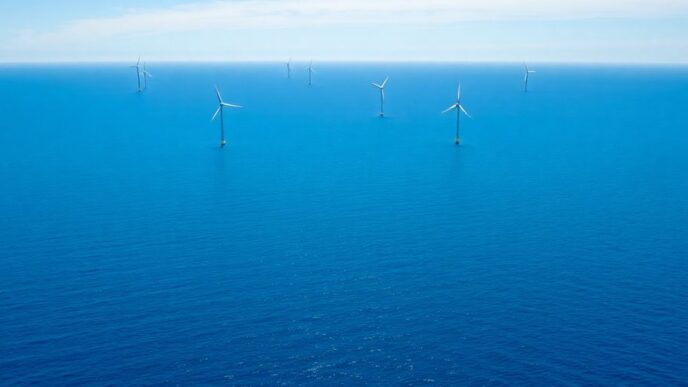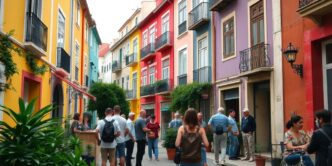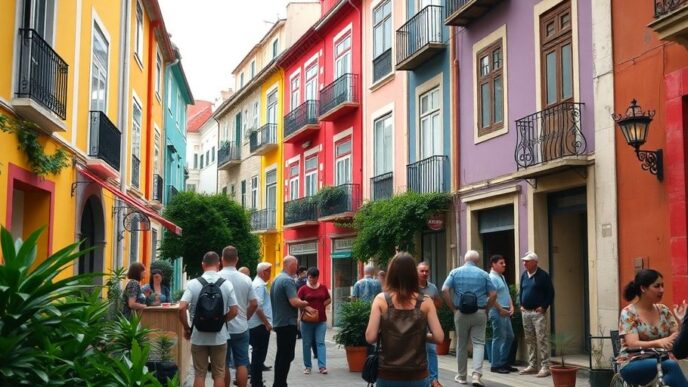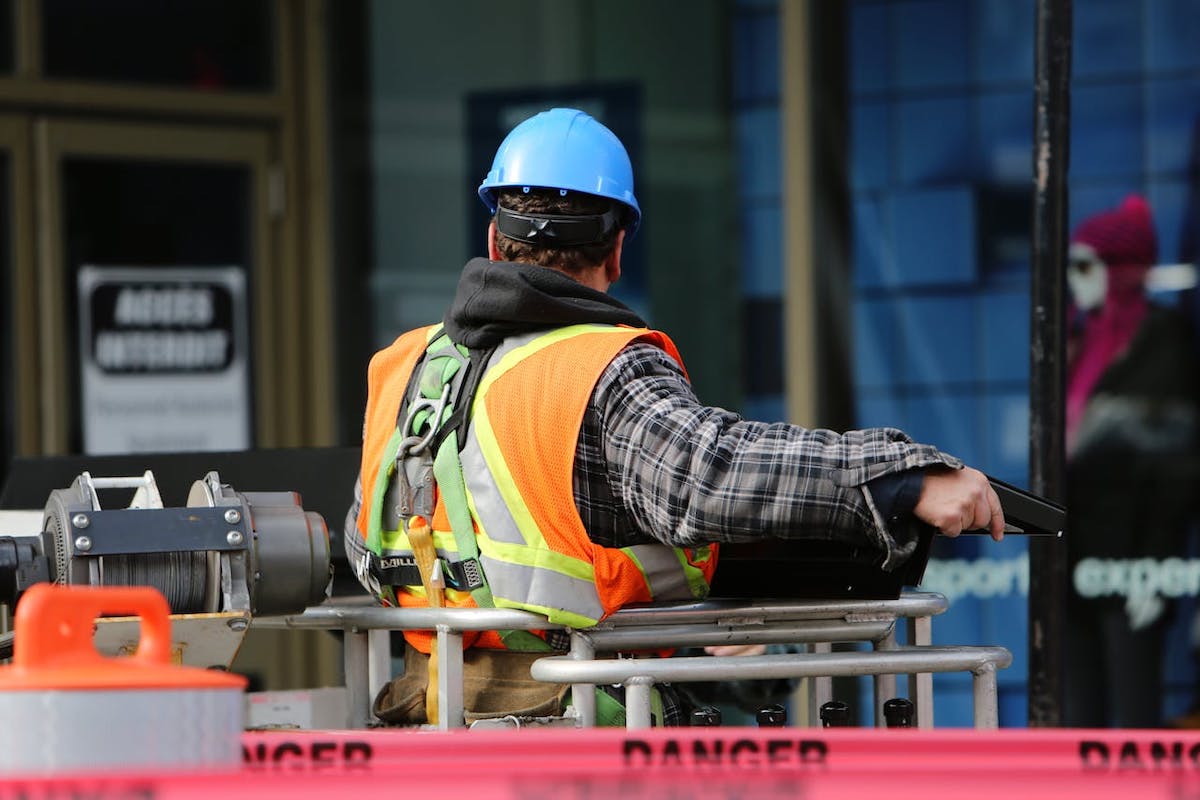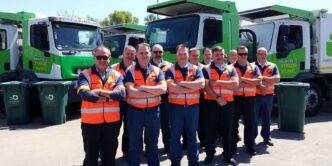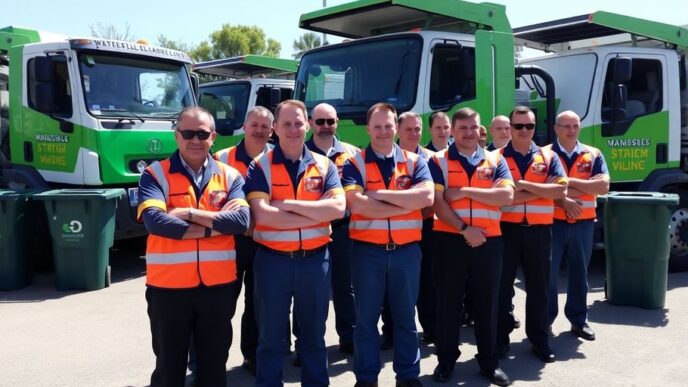Current State of Wildfires in Portugal

Regions Most Affected
Portugal is currently facing severe wildfires, with the most affected areas being:
- Alentejo: This region has seen extensive damage due to its dry conditions.
- Algarve: Popular for its tourism, it is now battling fierce flames.
- Centro: Many small towns are at risk as fires spread rapidly.
Weather Conditions Contributing to Fires
The weather has played a big role in worsening the situation. Key factors include:
- High Temperatures: Record heat has dried out vegetation, making it easier for fires to start.
- Strong Winds: These winds help the flames spread quickly across large areas.
- Low Humidity: Dry air means that fires can ignite and grow faster than usual.
Efforts to Contain the Fires
Firefighters and local authorities are working hard to control the wildfires. Their efforts include:
- Deploying Firefighting Teams: Many teams are on the ground, battling the flames.
- Using Aircraft: Planes and helicopters are dropping water on the hottest spots.
- Creating Firebreaks: These are gaps in vegetation that help stop the fire from spreading.
As of now, Portugal’s wildfires produce record emissions with smoke and ash affecting air quality. With several blazes burning since September 14, Portugal has recorded the highest total estimated emissions for the month of September in 22 years of CAMS data. The situation remains critical, and communities are on high alert as they face the ongoing threat of wildfires.
Impact on Local Communities
Evacuations and Displacements
The wildfires in Portugal have forced many families to leave their homes. Here are some key points about the situation:
- Thousands of people have been evacuated from their neighborhoods.
- Temporary shelters have been set up to provide safety and support.
- Many residents are worried about returning to their homes after the fires.
Economic Consequences
The fires have also hurt the local economy in several ways:
- Businesses have had to close, leading to loss of income.
- Tourism, a major source of revenue, has dropped significantly.
- Farmers are facing crop losses, which affects food supply and prices.
Government and Emergency Response
Firefighting Resources Deployed
The government has mobilized various resources to tackle the wildfires effectively. Key actions include:
- Deployment of Firefighters: Thousands of firefighters are on the ground, working tirelessly to control the flames.
- Aerial Support: Helicopters and planes are being used to drop water on the most affected areas.
- Equipment and Supplies: Firefighting gear, such as hoses and protective clothing, is being distributed to ensure safety and efficiency.
Public Safety Measures
The government has put several safety measures in place to protect citizens:
- Evacuation Plans: Clear plans are established for residents in high-risk areas.
- Public Alerts: Regular updates are shared through media to keep everyone informed.
- Community Training: Programs are offered to teach residents how to respond in case of a fire emergency.
Environmental Consequences
Damage to Wildlife and Habitats
The wildfires in Portugal have caused serious harm to both wildlife and their homes. Here are some key points:
- Many animals have lost their natural habitats, making it hard for them to survive.
- Some species are at risk of extinction due to the loss of food and shelter.
- The fires also destroy plants that are important for the ecosystem.
Long-term Ecological Impact
The effects of these wildfires will last for many years. Some of the long-term impacts include:
- Soil erosion, which can lead to landslides.
- Changes in local weather patterns, affecting rainfall and temperature.
- Loss of biodiversity, which means fewer different types of plants and animals.
Reforestation and Recovery Efforts
To help the environment recover, several actions are being taken:
- Local groups are planting new trees to replace those that were lost.
- There are programs to protect the remaining wildlife and their habitats.
- Community members are getting involved in clean-up efforts to restore the land.
Community Support and Solidarity

Local and International Aid
The wildfires in Portugal have sparked a wave of support from both local and international communities. Here are some key points about the aid efforts:
- Financial Donations: Many organizations and individuals are contributing money to help those affected.
- Supplies and Essentials: Local businesses are donating food, water, and clothing to support evacuees.
- Emergency Shelters: Communities are opening their doors to provide safe places for those who have lost their homes.
Volunteer Efforts
Volunteers have stepped up in amazing ways to help fight the fires and support affected families. Some of their efforts include:
- Firefighting Support: Many locals are joining firefighting teams to help control the flames.
- Community Clean-Up: After the fires, volunteers are helping to clean up and restore affected areas.
- Emotional Support: People are offering counseling and support to those who have experienced trauma from the fires.
Preventative Measures for the Future
Improving Firefighting Infrastructure
To better handle wildfires in the future, Portugal needs to focus on enhancing its firefighting resources. This can include:
- Upgrading equipment: Investing in modern firefighting tools and vehicles.
- Building more fire stations: Ensuring that there are enough facilities to respond quickly to emergencies.
- Training firefighters: Providing ongoing education and practice for those on the front lines.
Public Awareness Campaigns
Raising awareness about fire safety is crucial. A new fire prevention campaign will help educate the public. Key strategies include:
- Door-to-door outreach: Engaging with residents directly to share important information.
- School programs: Teaching children about fire safety in classrooms.
- Community workshops: Hosting events to discuss fire risks and prevention methods.
Conclusion
In summary, the wildfires in Portugal have caused serious problems for many local communities. Homes have been lost, and families are struggling to rebuild their lives. The fires not only destroy property but also harm the environment and wildlife. It’s important for everyone to come together to support those affected and to find ways to prevent these disasters in the future. By working as a community, we can help each other heal and create a safer place for everyone.

